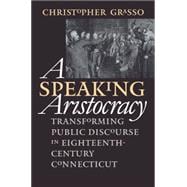
Note: Supplemental materials are not guaranteed with Rental or Used book purchases.
Purchase Benefits
What is included with this book?
| Acknowledgments | vii | ||||
|
xi | ||||
| Introduction | 1 | (16) | |||
| PART I: MEANING AND MORAL ORDER | 17 | (168) | |||
|
24 | (62) | |||
|
86 | (58) | |||
|
144 | (41) | |||
| PART II: CULTIVATION AND ENLIGHTENMENT | 185 | (276) | |||
|
190 | (40) | |||
|
230 | (55) | |||
| PART III: REVOLUTION AND STEADY HABITS | |||||
|
285 | (42) | |||
|
327 | (59) | |||
|
386 | (75) | |||
| Conclusion: The New Politics of Revolution and Steady Habits | 461 | (26) | |||
| Appendix 1: Connecticut Imprints | 487 | (4) | |||
| Appendix 2: Connecticut Election Sermons | 491 | (4) | |||
| Appendix 3: A Note on the Historiography of the Great Awakening | 495 | (4) | |||
| Index | 499 |
The New copy of this book will include any supplemental materials advertised. Please check the title of the book to determine if it should include any access cards, study guides, lab manuals, CDs, etc.
The Used, Rental and eBook copies of this book are not guaranteed to include any supplemental materials. Typically, only the book itself is included. This is true even if the title states it includes any access cards, study guides, lab manuals, CDs, etc.